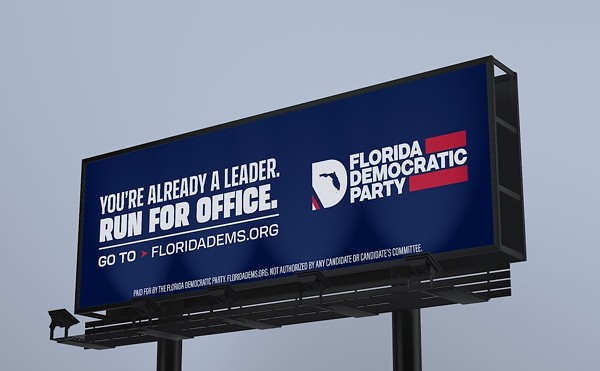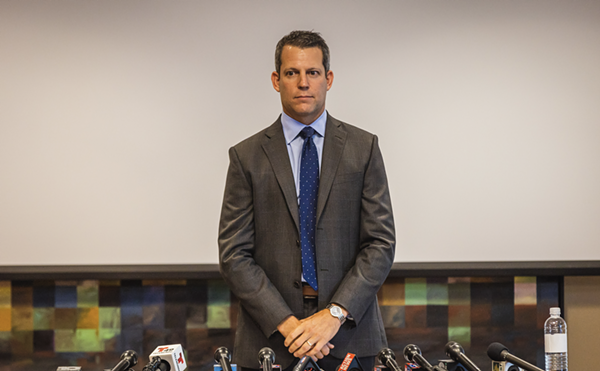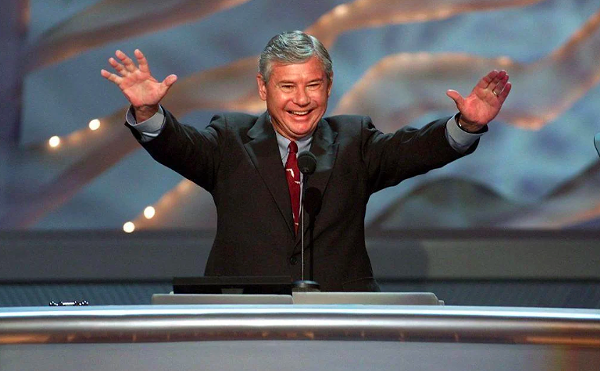The most salient example are the Great Railroad Strikes of 1877 when wage cuts, dangerous working conditions, and distrust of industry leaders erupted into violent confrontations between management and labor. Strikes occurred all over the country killing over a hundred people. The most extreme case occurred in Pittsburgh when fires erupted setting the city ablaze. There are other examples such as the bombing of the Los Angeles Times building which occurred in 1910 over its anti-union policies. Then there was the Ludlow Massacre of 1914, when the National Guard attacked a compound of striking miners and their families killing around twenty people.
These are America's stories of class warfare, and represent the very real, and very violent, clashes that manifest under a growing divide between the side of capital and of labor. It's an egregious mischaracterization to equate the elimination of tax deductions for the wealthy with the cases mentioned above. In no way does the President's proposal continue an oppressive history disenfranchising the working class. In fact, the charge of class warfare distracts us from the real issue of today - the yawning divide between the rich and the middle class. Below is a graphic from the Center on Budget and Policy Priorities which illustrates that rift.

The U.S. middle class has been stretched thin over the past couple of decades. The median income has remained stagnant for the past thirty years as much of America's wealth continues to concentrate up at the top. In fact, the UN has reported that before the recession of 2008, the United States had the highest level of income inequality among all highly industrialized countries. Despite the upward flow of capital, top income brackets have actually been paying increasingly less in taxes. Below is a chart from the Tax Policy Center illustrating the falling tax rates over time. Note that under the President's proposal, top income earners will still be paying far less than they were under Reagan and Nixon.
In the President's words, "This is not class warfare, it's math".
However, not all of the plan's critics are crying 'class warfare.' On another front, many argue that raising taxes on top income brackets would disincentivize job creators from hiring and, in turn, stymie growth in the economy. This may seem right in theory, but it's a specious argument as our current economy demonstrates that business profitability does not necessarily lead to more jobs. As many have pointed out, job creation has flat-lined despite that fact that corporations are sitting on record profits. As it turns out, those at the top income brackets are not the "job creators" we have expected them to be.
Furthermore, there is nothing to suggest that high marginal tax rates for top income earners would encumber the economy. Again, the chart from the Tax Policy Center shows that the top marginal tax rates soared between 70% to 90% three decades following World War II, a period marked by an expanding middle class, climbing GDP, and over all economic prosperity. The U.S. economy grew more during that period than any other since. This is not to say that higher tax rates caused the prosperity, but it does refute the old canard that high tax rates on the wealthy inevitably hurts the economy.
Now what happens if we continue to lower tax rates for top income brackets? Lower income earners will have to pay a bigger burden. Many GOP candidates have suggest we do just this. Rick Perry, Mitt Romney, and Michelle Bachmann have all suggested that we 'broaden the base', which means extend the tax burden to more income brackets including the middle class and lower class. What would that do to the economy? Does anyone really think that raising taxes on middle class families during a recession is a good idea?
After all is said and done, the American people support raising taxes on the wealthy. Below is a Gallup poll measuring public opinion of President's plan.
Two-thirds of Americans support raising taxes on top income earners, and over two-thirds support eliminating tax deductions for corporations.
This is not a new debate. Liberals and conservatives have always disagreed over the role government should play in the economy. However, despite our pro-market culture, our history paints us as champions for the middle class. Government action protected laborers from harsh working conditions in factories. Anti-trust laws exposed questionable business practices and broke up monopolies to ensure competition in industry. The American economy is not one that ever enjoys complete absence of government. Many times the government has to get involved, and raising taxes on those who can afford it is a minimal measure. Republican leaders would do well to remember this because the more they decry the President's plan, the more they isolate themselves from general will of the American middle class.
Ben Luongo teaches American Government and International Relations at St. Petersburg College





















